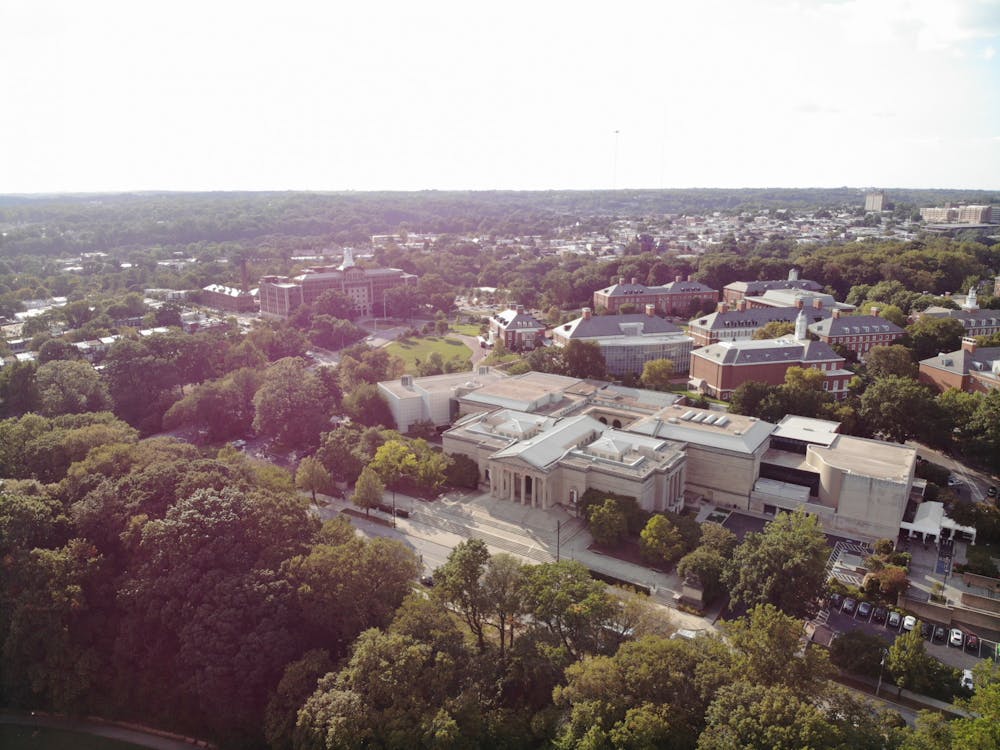Poet and activist Crystal Valentine was featured at an event hosted by the Office of Multicultural Affairs (OMA) on Thursday, Feb. 24 where she discussed Black history through the lens of poetry and her own experiences as part of the Heritage 365 Initiative.
Valentine’s poetry focuses on themes of identity, intersectionality, pop culture and Black voices. Author of Not Everything is a Eulogy, Valentine received the Women of Distinction award from the National Conference of College Women Student Leaders and has presented her work worldwide with the goal of representing a wide intersection of identities.
The event was executed in a hybrid modality, with Valentine presenting her speech titled “Blackness and the Volta: The Perpetual Pivot Towards Liberation” from Boston.
The first half of Valentine’s talk was lecture-based, describing American poet Lucille Clifton and her use of the volta, a poetic device used in sonnets to signify a shift in meaning.
Valentine used the concept of a volta throughout her lecture to explore important pivots in history and communicate the experience of what it means to be Black in America and worldwide.
“From music, to art, to fashion, all the way down to our vernacular, we have influenced the culture of America,” she said. “We have influenced this culture so much so that Black culture is American culture.”
Junior Udochukwu Nwosu, moderator of the event, highlighted the value of the talk in an interview with The News-Letter.
“It was very refreshing to see a voice that has so many identities that are not usually put at the forefront in current popular culture and hearing her take on things like pop culture in America,” she said.
Nwosu was glad to see a speaker at Hopkins discuss the arts outside of the dominant straight, white male perspective.
Valentine also discussed how cultural appropriation on TikTok mirrors that in the country at large.
“TikTok relies on the act of replication,” she said. “Now this is all fun and games until the primary source of that replication is Black culture, and its primary replicators are non-Black folk who somehow always received credit.”
The poems Valentine recited dealt with this issue. The first, written in response to Kylie and Kendall Jenner superimposing their faces on those of Black creators Biggie Smalls and Tupac Shakur, had similar themes of prejudice, double standards and identity to her second poem, which was about her experiences in Paris.
Interspersing her lecture with readings of her poems, Valentine looked back at her childhood experiences of lisping and going to speech therapy.
In her last recitation, she drew on connections between her own history with speech and how many Black Americans are told they don’t speak correctly due to the stigma surrounding Black vernacular.
“My lisp is intentional because before my ancestors were stolen, they had their own culture, their own language,” she said. “My lisp is my mouth’s attempt at fighting off colonization because I am a big believer that the body never forgets.”
Valentine also discussed how she is able to protect her mental health when writing about such personal topics, her thoughts on how the Black Lives Matter movement was received in 2020 and how her poetry has grown.
In an email to The News-Letter, event organizer from OMA Stephanie Mathew described the importance of listening to a variety of voices year-round.
“As part of the Heritage 365 initiative, we organize programs to celebrate Black, Indigenous, Latinx and APIDA [Asian Pacific Islander Desi American] people throughout the academic calendar to go beyond the month they are recognized nationally,” she wrote.
Freshman Stephanie Njeri, who attended the event, has been following Valentine’s poetry since 2015. She expressed appreciation for the structure of the event.
“It felt like a conversation, and then she'd go into a poem, and then there'd be some explanation,” Njeri said. “It was informational and personal at the same time. So it was really, really interesting.”
Freshman Yasmin Bolden, who began the event by sharing an original poem and introducing Valentine, was impressed by the way that Valentine tied the personal and political themes in her poetry together.
“It was very important to Valentine that she was able to see who was in attendance, that they were able to see her, that they were able to freely ask questions — to make sure there wasn’t a wall or distance between them, but to make it feel like we're really in community and in conversation with one another,” she said.





